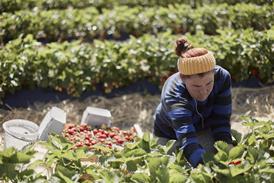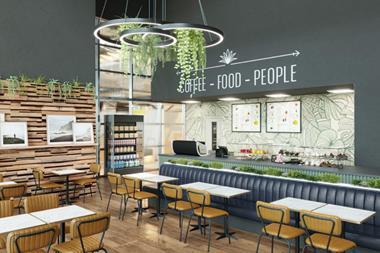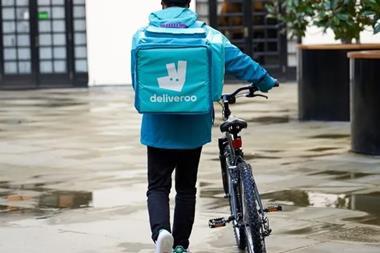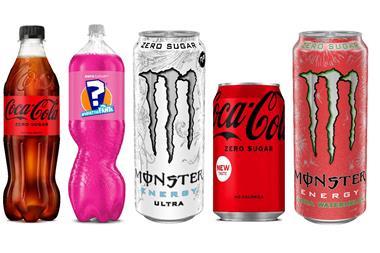If the recent credit crunch is going to impact on private equity's ability to go shopping this year then no-one told Duke Street Capital.
Under its stewardship Britain's second-biggest biscuit manufacturer Burton's Foods, which was bought by the venture capitalist just over a year ago, has launched an ambitious buy and build strategy for 2008, kicking things off in January with the acquisition of Northumbrian Fine Foods. Many more acquisitions are in the pipeline.
Burton's CEO Paul Kitchener, the man in the driving seat, is optimistic about the future. Duke Street's involvement in the business marks a new growth phase for Burton's he says, admitting that growth had faltered under previous private equity owner HM Capital.
Last year's buyout was second time lucky for Duke Street as it was pipped to the post when the business went up for sale in December 2000, and now it has its hands on it, Duke Street is wasting no time making up lost ground, he says.
"Duke Street has brought the investment opportunity to grow our business through acquisitions," says Kitchener. "Frankly, our previous owner didn't bring the investment opportunities we wanted."
Under its new ownership, Burton's has particularly targeted companies operating in the healthy or premium snacking categories. January's buyout of NFF catapulted Burton's into different territories, including Fairtrade with its Geo bars. More purchases of this ilk will follow, says Kitchener. Burton's has already talked to more businesses in the past nine months with the view to buying them than in the four years under HM Capital, he claims. Potential acquisitions, suggest analysts, could include Bahlsen, Fudges Bakery and Whitworths.
"I couldn't put a figure on what Duke Street is prepared to spend but it won't limit my ambitions. If I felt it was the right opportunity and I had a strong case for buying a company then Duke Street would back it. Hardly a week goes by without talk of potential acquisitions in food. We see ourselves as a consolidator within biscuits, providing we get the companies at the right price."
Buying companies at the right price is a moot point for Kitchener, following comments by Northern Foods' chief executive Stefan Barden, who said Duke Street had paid over the odds. Northern Foods had been in the running but wasn't willing to match Duke Street's offer, estimated at about £210m. Barden called the price "unwarranted".
"Stefan is entitled to his view," says Kitchener. "He would have liked to have bought the business at the time and didn't. He had a reason for not buying it, but I don't believe Duke Street overpaid for Burton's and neither do they. They want to help us strengthen our strategy. There are investors I've known in the past who are happy to sit on the sidelines but it's much better to have a sponsor who's really interested in your business."
Nevertheless, Duke Street will want decent returns on its purchase. When it lost out to HM Capital last time round, Burton's went for £130m. The £80m extra it had to shell out will no doubt be in Duke Street's mind.
This year Burton's turnover will hit £340m, with volumes up 2% year-on-year and value up 8%, primarily because it has managed to push through price increases, although it is also selling more premium products. Its share of the biscuit market grew from 6.9% in 2005 to 7.9% last year and, with the NFF business, now stands at 8.2%.
Burton's has already started to rationalise the business. The company has pulled out of wafer production and manufacture of its Jammie Dodgers and Cadbury biscuit lines has migrated from its Moreton plant to other factories, with the loss of 230 jobs. By the end of 2009 Moreton will function as a packing facility for its Cadbury seasonal assortment plant, with much of the surplus land sold off.
More improvements can be made, says Kitchener. "Am I happy with the company's margins? No. They need to improve. The key is to persuade people to buy more of our products above anybody else's. If we can do that we will grow our market share, our business and our profit."
The sheer number of brands in Burton's portfolio is one of reasons why the company has proved so attractive to private equity firms in the past few years. Burton's produces about 20 brands, including Maryland, Viscount and Traidcraft, and has achieved particular success with its Maryland cookie range, which grew 20% in value in the year to October 2007. Jammie Dodgers was also up 5.3% in value. Its Cadbury Fingers brand, which it produces under licence, fell 8.3%, but Kitchener believes there is mileage in similar alliances.
Last year the company formed licensing agreements with Unilever to launch a Bertolli range of savoury snacks, and with Green & Black's for a range of chocolate biscuits, and while he says there are no immediate plans for a new licence, he intends to exploit the existing arrangements.
"The cost of launching a new brand is enormous so if we can find one that we can license, which is a strength of ours, we will. We don't see any problems in going for licensing opportunities in the future."
This approach is certainly different to that of its main competitor, United Biscuits UK, which owns the McVitie's and Jacob's brands. Kitchener, who knows their business well having previously worked there for 14 years, acknowledges Burton's brands can't go head-to-head with heavyweights such as Hob Nobs or McVitie's. That's why it is concentrating on parts of the category where UB UK's presence is limited instead. "Our business model has to be fundamentally different from United Biscuits'. We need lots more brands, which does bring challenges."
Future plans include more Bertolli and Green & Black's lines this year and cereal bar extensions to Maryland and Jammie Dodgers. A £3m TV campaign for its Cadbury biscuits is currently running and will be followed up with campaigns for Maryland and Bertolli later this year. "We have done more advertising, which may seem perverse given the financial climate, but it's for that very reason," says Kitchener. "We want to make sure our brands are in people's minds as much as they possibly can be."
A move into cakes is also planned, although this will probably be achieved with its existing brands rather than the acquisition of a cake manufacturer. More cereal bars and Fairtrade products can now be considered as a result of the extra production capabilities the purchase of NFF has brought. Overall, Burton's plans to spend about £10m on its bakeries this year.
While Kitchener has been at pains to take a different approach to his rivals, he admits they have one thing in common - soaring material costs. He agree with Barden's recent comments that suppliers will be forced to consolidate further to mitigate the effect of rising wheat, fuel, butter, milk and chocolate costs.
"There's not a food company in Europe that hasn't been affected by the commodity market but the chocolate biscuit category has been hit hard," says Kitchener. "I've been in the industry 30 years and I have never seen a time like it."
Burton's price rises have averaged at 8%, well above the 2% norm over the past few decades, but smaller manufacturers will struggle to pass these on. "They won't all survive in the future," he says. "Retailers want more pounds per square foot of sales and that will lead to fewer, bigger brands in the market."
This doesn't necessarily mean Burton's will be snapping up every company that comes up for sale. "Consolidation for consolidation's sake is not the right way forward," Kitchener insists. But you can expect it to get its chequebook out soon.nsnapshot
Paul Kitchener snapshot
Age: 52
Education: Attended North Staffordshire Polytechnic where he studied for a geography degree.
Career to date: Started his career in the transport department at Smiths Crisps, before moving to Nabisco. He then spent 14 years at United Biscuits before joining the Brakes Foodservice business as divisional chief executive of its UK business, and became Burton's CEO in January 2004.
What do you like doing in your spare time? My three young boys keep me busy at the weekends but I like to cook as well when I have the time. My business card says I'm head baker as well to show that I can still cook.
What do you dislike most about the industry? The lack of NPD. Industry levels of innovation were very poor last year. As much as I love that Green & Black's cereal bars were named The Grocer's top launch of 2007, it doesn't make me pleased that there was not a lot to compete with. The category has got to be exciting for the consumer, and that can only be done with innovation.
You have so many different brands, how do you deal with all of them? Mostly we focus on just one brand on one day and live and breathe it so that we really understand what is going on with it . Only when we look at NPD do we look at all the brands together.
Under its stewardship Britain's second-biggest biscuit manufacturer Burton's Foods, which was bought by the venture capitalist just over a year ago, has launched an ambitious buy and build strategy for 2008, kicking things off in January with the acquisition of Northumbrian Fine Foods. Many more acquisitions are in the pipeline.
Burton's CEO Paul Kitchener, the man in the driving seat, is optimistic about the future. Duke Street's involvement in the business marks a new growth phase for Burton's he says, admitting that growth had faltered under previous private equity owner HM Capital.
Last year's buyout was second time lucky for Duke Street as it was pipped to the post when the business went up for sale in December 2000, and now it has its hands on it, Duke Street is wasting no time making up lost ground, he says.
"Duke Street has brought the investment opportunity to grow our business through acquisitions," says Kitchener. "Frankly, our previous owner didn't bring the investment opportunities we wanted."
Under its new ownership, Burton's has particularly targeted companies operating in the healthy or premium snacking categories. January's buyout of NFF catapulted Burton's into different territories, including Fairtrade with its Geo bars. More purchases of this ilk will follow, says Kitchener. Burton's has already talked to more businesses in the past nine months with the view to buying them than in the four years under HM Capital, he claims. Potential acquisitions, suggest analysts, could include Bahlsen, Fudges Bakery and Whitworths.
"I couldn't put a figure on what Duke Street is prepared to spend but it won't limit my ambitions. If I felt it was the right opportunity and I had a strong case for buying a company then Duke Street would back it. Hardly a week goes by without talk of potential acquisitions in food. We see ourselves as a consolidator within biscuits, providing we get the companies at the right price."
Buying companies at the right price is a moot point for Kitchener, following comments by Northern Foods' chief executive Stefan Barden, who said Duke Street had paid over the odds. Northern Foods had been in the running but wasn't willing to match Duke Street's offer, estimated at about £210m. Barden called the price "unwarranted".
"Stefan is entitled to his view," says Kitchener. "He would have liked to have bought the business at the time and didn't. He had a reason for not buying it, but I don't believe Duke Street overpaid for Burton's and neither do they. They want to help us strengthen our strategy. There are investors I've known in the past who are happy to sit on the sidelines but it's much better to have a sponsor who's really interested in your business."
Nevertheless, Duke Street will want decent returns on its purchase. When it lost out to HM Capital last time round, Burton's went for £130m. The £80m extra it had to shell out will no doubt be in Duke Street's mind.
This year Burton's turnover will hit £340m, with volumes up 2% year-on-year and value up 8%, primarily because it has managed to push through price increases, although it is also selling more premium products. Its share of the biscuit market grew from 6.9% in 2005 to 7.9% last year and, with the NFF business, now stands at 8.2%.
Burton's has already started to rationalise the business. The company has pulled out of wafer production and manufacture of its Jammie Dodgers and Cadbury biscuit lines has migrated from its Moreton plant to other factories, with the loss of 230 jobs. By the end of 2009 Moreton will function as a packing facility for its Cadbury seasonal assortment plant, with much of the surplus land sold off.
More improvements can be made, says Kitchener. "Am I happy with the company's margins? No. They need to improve. The key is to persuade people to buy more of our products above anybody else's. If we can do that we will grow our market share, our business and our profit."
The sheer number of brands in Burton's portfolio is one of reasons why the company has proved so attractive to private equity firms in the past few years. Burton's produces about 20 brands, including Maryland, Viscount and Traidcraft, and has achieved particular success with its Maryland cookie range, which grew 20% in value in the year to October 2007. Jammie Dodgers was also up 5.3% in value. Its Cadbury Fingers brand, which it produces under licence, fell 8.3%, but Kitchener believes there is mileage in similar alliances.
Last year the company formed licensing agreements with Unilever to launch a Bertolli range of savoury snacks, and with Green & Black's for a range of chocolate biscuits, and while he says there are no immediate plans for a new licence, he intends to exploit the existing arrangements.
"The cost of launching a new brand is enormous so if we can find one that we can license, which is a strength of ours, we will. We don't see any problems in going for licensing opportunities in the future."
This approach is certainly different to that of its main competitor, United Biscuits UK, which owns the McVitie's and Jacob's brands. Kitchener, who knows their business well having previously worked there for 14 years, acknowledges Burton's brands can't go head-to-head with heavyweights such as Hob Nobs or McVitie's. That's why it is concentrating on parts of the category where UB UK's presence is limited instead. "Our business model has to be fundamentally different from United Biscuits'. We need lots more brands, which does bring challenges."
Future plans include more Bertolli and Green & Black's lines this year and cereal bar extensions to Maryland and Jammie Dodgers. A £3m TV campaign for its Cadbury biscuits is currently running and will be followed up with campaigns for Maryland and Bertolli later this year. "We have done more advertising, which may seem perverse given the financial climate, but it's for that very reason," says Kitchener. "We want to make sure our brands are in people's minds as much as they possibly can be."
A move into cakes is also planned, although this will probably be achieved with its existing brands rather than the acquisition of a cake manufacturer. More cereal bars and Fairtrade products can now be considered as a result of the extra production capabilities the purchase of NFF has brought. Overall, Burton's plans to spend about £10m on its bakeries this year.
While Kitchener has been at pains to take a different approach to his rivals, he admits they have one thing in common - soaring material costs. He agree with Barden's recent comments that suppliers will be forced to consolidate further to mitigate the effect of rising wheat, fuel, butter, milk and chocolate costs.
"There's not a food company in Europe that hasn't been affected by the commodity market but the chocolate biscuit category has been hit hard," says Kitchener. "I've been in the industry 30 years and I have never seen a time like it."
Burton's price rises have averaged at 8%, well above the 2% norm over the past few decades, but smaller manufacturers will struggle to pass these on. "They won't all survive in the future," he says. "Retailers want more pounds per square foot of sales and that will lead to fewer, bigger brands in the market."
This doesn't necessarily mean Burton's will be snapping up every company that comes up for sale. "Consolidation for consolidation's sake is not the right way forward," Kitchener insists. But you can expect it to get its chequebook out soon.nsnapshot
Paul Kitchener snapshot
Age: 52
Education: Attended North Staffordshire Polytechnic where he studied for a geography degree.
Career to date: Started his career in the transport department at Smiths Crisps, before moving to Nabisco. He then spent 14 years at United Biscuits before joining the Brakes Foodservice business as divisional chief executive of its UK business, and became Burton's CEO in January 2004.
What do you like doing in your spare time? My three young boys keep me busy at the weekends but I like to cook as well when I have the time. My business card says I'm head baker as well to show that I can still cook.
What do you dislike most about the industry? The lack of NPD. Industry levels of innovation were very poor last year. As much as I love that Green & Black's cereal bars were named The Grocer's top launch of 2007, it doesn't make me pleased that there was not a lot to compete with. The category has got to be exciting for the consumer, and that can only be done with innovation.
You have so many different brands, how do you deal with all of them? Mostly we focus on just one brand on one day and live and breathe it so that we really understand what is going on with it . Only when we look at NPD do we look at all the brands together.
















No comments yet